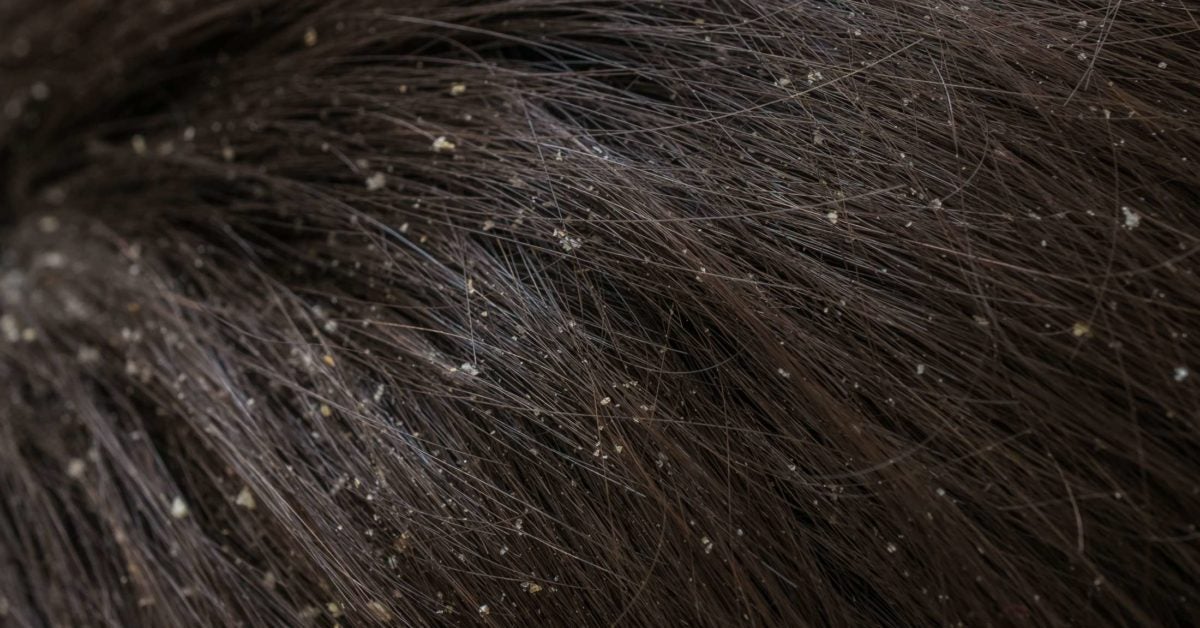Which is it – dandruff or a dry scalp? This often discussed issue has probably crossed everyone’s minds in Malaysia at least once in our life. In spite of how similar these circumstances appear at first glance, closer inspection reveals distinctive characteristics that distinguish them. The key difference between dandruff and a dry scalp is that dandruff is an actual medical issue, while a dry scalp is only a hydration problem.
The Causes and Symptoms of Dandruff and Dry Scalp
Causes of Dandruff
The scalp sheds dead skin cells like the rest of the skin. Dandruff develops when this process quickens. Dead skin cells are what cause dandruff flakes. Dandruff gets worse when the scalp loses dead skin at a faster rate. The pace at which the skin sheds might vary depending on a number of variables.
Dandruff may be caused by several factors such as overactive sebaceous glands, fungal infections of the scalp, oils that the scalp produces, sensitivity to the chemical contained in shampoo and conditioner used, stress and so on.

Causes of Dry Scalp
When the scalp lacks sufficient oil to moisten the skin, it develops a dry scalp. This can result in irritation, flaking, and itching, similar to other dry skin. Due to the fact that the oil from the scalp nourishes the hair, it can also make the hair look dry. Several factors that contribute to dry skin might also result in a dry scalp, such as washing too much, irritation from shampoo and conditioner, sunburn, failure to create or hold moisture and so on.
Symptoms of Dandruff and Dry Scalp
Dandruff flakes would be bigger, yellow-tinged, or oily looking compared to dry scalp flakes. While dandruff and dry scalp are cyclical conditions, dandruff caused by a fungal infection is unlikely to resolve on its own. However, less frequent washing would help a dry scalp.
The scalp may become scratchy and irritated due to either condition. People with either problem may scratch their scalp often, which becomes red or develops tiny sores if symptoms are severe.
Treatment for Dandruff and Dry Scalp: Shampoo To Reduce Dandruff
The majority of dandruff problems can cure at home easily. Routinely shampoo your hair using an anti-dandruff shampoo that suits you the best if you have dandruff. Numerous underlying causes of dandruff, including mild fungal infections, can be treated with this.
Pyrithione is a common ingredient in anti-dandruff shampoo, which is widely accessible online. Besides, shampoo with coal tar is another remedy for dandruff. People with blonde or grey hair might prefer another product because this one may modify the colour of light hair.
The other medication in some of the dandruff shampoos is selenium sulphide which reduces the growth of fungus and stops an excessive quantity of skin cells from degenerating. One of the shampoos formulated with selenium sulphide is Selsun Blue anti-dandruff Shampoo.
For a dry scalp, you can use shampoo for an itchy scalp instead of medicated shampoo. There are lots of shampoo suppliers in Malaysia that include a solution that prevents a flaky scalp.
Try switching between two dandruff shampoos if one kind first seems to be beneficial then lose its effectiveness. Additionally, try using the medicated shampoo less often after your dandruff is under control for maintenance and prevention.
Speak with your doctor or dermatologist if you’ve been using medicated shampoo consistently for a few weeks but still have dandruff. You could require a steroid lotion or a shampoo with prescription strength.
